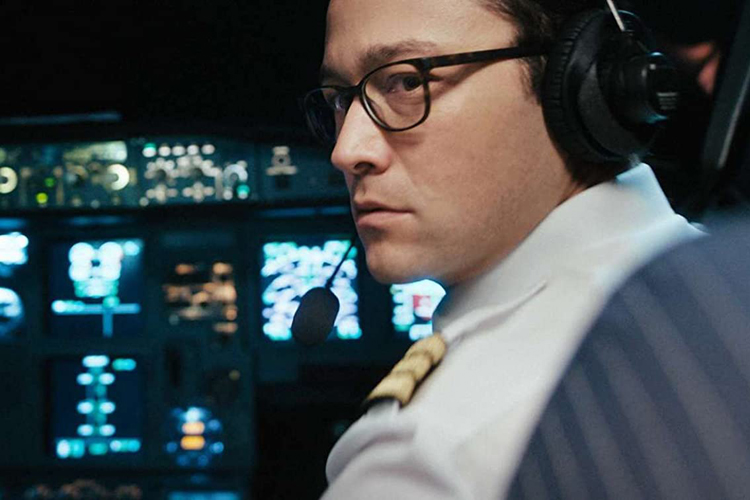The question on everyone’s mind has finally been answered: where has Joseph Gordon-Levitt been all these years? He starred in 2016’s Snowden shortly before the election, but when the world needed him most, he vanished. Four yours passed and we’ve finally found a new Gordon-Levitt project, and although it’s a low-budget chamber piece about terrorists, I believe 7500 can entertain the world.
7500 is a humble affair: it’s the feature debut of German filmmaker Patrick Vollrath, it takes place entirely on a small airplane set, and it was made for a (relatively) paltry $5 million. If it weren’t for the coronavirus putting a moratorium on Hollywood blockbusters, American audiences might never have heard of it. And, since it’s only 90 minutes, giving it a chance won’t force you to plan around protests or lock your kids on the other side of the house for too long. Provided you can stomach a story about extreme violence right now, 7500 is a perfect candidate for home movie night.
That’s not to say it’s a perfect movie. The bare-bones story, while commendably streamlined, comes with some bones pre-broken—that is to say, problems in the screenplay structure hold it back from achieving peak effectiveness as a thriller. Here’s the concept: Joseph Gordon-Levitt plays Tobias Ellis, an airline pilot who’s en route to Paris when terrorists try to hijack the plane. He can keep them out of the cockpit with a sealed door, but the hijackers still run amok in the aisles, threatening to kill passengers one by one until Tobias lets them in the cockpit. Problem is, though, it’s made clear that the terrorists intend to crash the plane into a populated area. So, technically, Tobias’ choice is between passengers dying and all the passengers dying plus change. This fails as a compelling moral dilemma because the pragmatic choice is so clear.
Even with the paper-thin acknowledgement that Tobias shares a connection with one of the stewardesses, there’s never any real fear that Tobias will unlock the door. It’s always obvious that doing so is the wrong move, no matter how much it eats Tobias up inside. At least Gordon-Levitt makes up for the dearth of tension with his performance: he’s transfixing as an ordinary man undergoing extraordinary trauma, keeping all the shock in his facial expressions as his body kicks into survival mode. It’s easily the actor’s most successful bid at shedding the ‘charmer’ image that’s followed him since the 90s. He doesn’t save 7500’s first half, but he sure makes it worth watching.
The film’s second half adds a lofty goal to the thrills of the first: humanizing the terrorists. Vedat, the youngest of the hijackers, ends up working alongside Tobias, as he wants to abandon the attack and escape with his life. Just when you thought one powerhouse performance was enough, Omid Memar comes storming in with another. Shrieking, weeping, shaken and scared, Memar conveys a deeper sense of isolation and fear than Tobias—one character is feeling those emotions as reactions; the other has had to internalize them from birth. 7500 doesn’t cross over into musings on global politics—it mostly sticks to its identity as a one-location thriller, despite its humanistic ambition—but not knowing how Tobias and Vedat will clash amid the disaster is genuinely thrilling.
All in all, 7500 is marginally more thoughtful than your average genre fare, but an air of inevitability holds it back from greatness. Perhaps inevitability is the right feeling to foster, though, when examining the cycle of violence in cinema: if there’s any takeaways here, it’s that terrorists aren’t isolated incidents, and that we’re responsible for breaking the cycle that inevitably gives birth to them. And that we want more Joseph Gordon-Levitt.
★★★½ (3.5/5)




